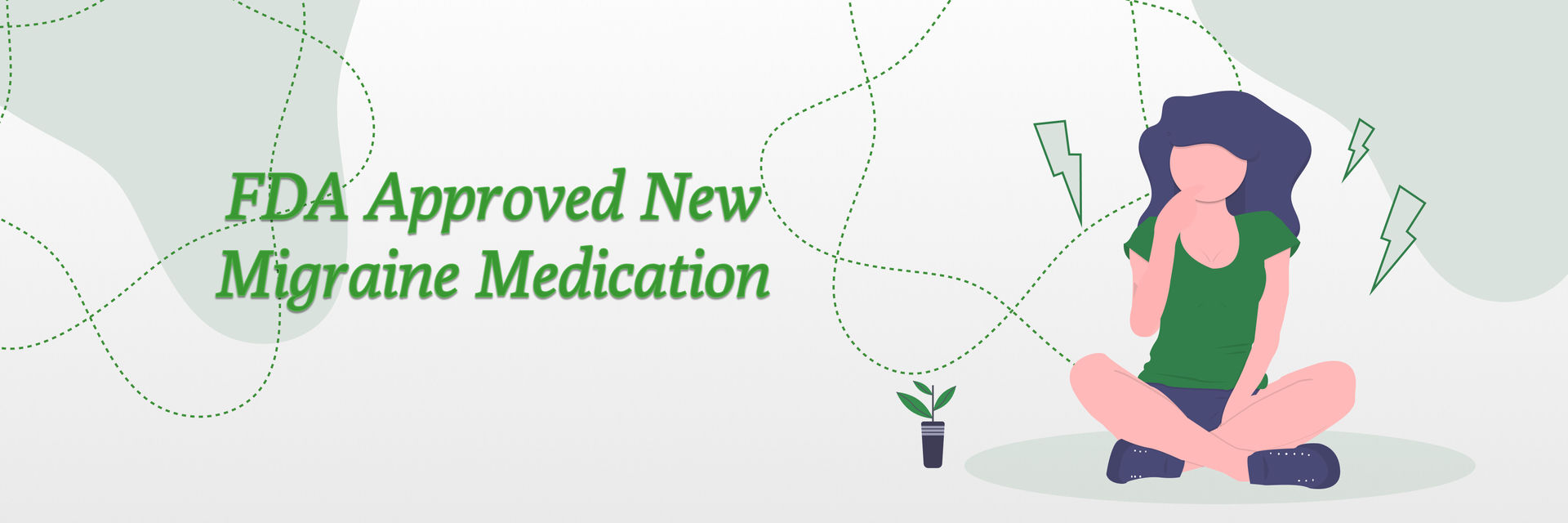Did you know that in the United States, approximately 3.4 million people, are affected by epilepsy, which includes Acute Symptomatic Seizures? Understanding these seizures is key to effective management. In this article, we delve into Acute Symptomatic Seizures, their causes, and essential management information, with a focus on the most impacted age groups.
Let's embark on this informative journey together.
Acute symptomatic seizures, as the name implies, are seizures that occur due to an identifiable underlying cause or trigger. They don't happen spontaneously; instead, they are prompted by a specific condition or event. Now, let's dive into what sets acute symptomatic seizures apart.
Acute symptomatic seizures, in contrast to epilepsy, involve isolated seizures directly linked to an underlying cause or condition. They are not recurrent, unprovoked events.
What Are Acute Symptomatic Seizures?

Acute symptomatic seizures are distinct from epilepsy, characterized by recurrent, unprovoked seizures. These seizures are a one-time event and are directly linked to an underlying cause or condition.
Concerned about acute symptomatic seizures? Don't wait – book your health check-up today.
Common triggers for acute symptomatic seizures include:
Addressing the underlying cause of acute symptomatic seizures is crucial. Treatment may involve managing the triggering condition, such as
- administering antiviral medications for infections
- correcting metabolic imbalances
- providing appropriate care for head injuries.
In some instances, antiseizure medications might be prescribed for a limited time to prevent further seizures during the acute phase. Successfully treating or resolving the underlying cause can prevent future seizures.
Individuals who experience a seizure should seek medical attention to determine the cause and receive proper care and treatment. Recurrent unprovoked seizures may indicate epilepsy, a chronic neurological condition requiring ongoing management.
Now, let's delve into the triggers and causes that can set off these seizures.
Are Acute Symptomatic Seizures common?
Acute symptomatic seizures can indeed be quite common, especially when considering the range of conditions and situations that can lead to them. As you've outlined, they can happen across all age groups and under various medical circumstances.
Here are some stats that offer insight into their prevalence:
Febrile Seizures in Children:
These are among the most common types of seizures in children, with an estimated 2-5% of children in North America and Europe experiencing at least one febrile seizure.
Head Injuries:
The incidence of seizures following traumatic brain injury (TBI) varies, but seizures are reported in about 5-7% of individuals with TBI. The risk is higher with more severe injuries.
Stroke:
The occurrence of seizures after a stroke is estimated at about 10% in the first year following an ischemic stroke (caused by blood clots) and can be as high as 16% or more following a hemorrhagic stroke (caused by bleeding).
Infections:
Seizures can occur in various central nervous system infections. For example, in bacterial meningitis, seizures may occur in up to 30% of adults and are even more common in children.
Alcohol and Drug Withdrawal:
Alcohol withdrawal seizures occur in 2-6% of patients with alcohol withdrawal syndrome and are a significant concern during the detoxification process.
Metabolic Disturbances:
In conditions such as hypoglycemia, the incidence of seizures is higher when the metabolic imbalance is severe.
Eclampsia:
In the context of pregnancy, eclampsia (a severe complication characterized by high blood pressure and seizures) affects about 1 in every 2000-3000 pregnancies in the Western world.
It's important to note that the above statistics are subject to change as new research emerges and as medical practices evolve. Moreover, these stats can be influenced by factors such as geographic location, access to medical care, and public health initiatives.
Also, while acute symptomatic seizures can be common in certain conditions, they are usually a one-time occurrence or limited to the duration of the acute illness or injury. This distinguishes them from chronic seizure disorders like epilepsy, which affects roughly 50 million people worldwide, according to the World Health Organization.
How are Acute Symptomatic Seizures different from other types of seizures?
Acute symptomatic seizures are a unique subset of seizures that stand apart from other types for several reasons:
1. Clear Cause:
They have a direct and identifiable cause, such as a recent brain injury, infection, or metabolic disturbance.
2. Timing of Occurrence:
These seizures usually happen soon after the cause, such as shortly after a head injury or in the midst of an infection.
3. Likelihood to Recur:
Once the immediate cause is addressed, acute symptomatic seizures typically do not happen again.
4. Treatment Focus:
The main aim is to treat the root cause, and seizure medications may only be needed short term, if at all.
In contrast, other types of seizures, especially those associated with epilepsy, may not have a known cause, can happen unpredictably, often recur, and typically require ongoing treatment.
So, why is it important to tell them apart?
Knowing whether a seizure is acute symptomatic or part of a chronic condition like epilepsy influences how it's treated and what doctors can tell patients about their future risk of seizures. It's a matter of fixing an immediate problem versus managing a long-term condition. Each scenario calls for a tailored approach, both in the short and long term.
Understanding seizures is key to your well-being. Learn the difference and take action – Contact us now!
What Causes Acute Symptomatic Seizures?
Acute symptomatic seizures occur when there's an immediate and identifiable cause. Here's a breakdown of what can trigger them:
- Head Injury: Trauma to the head, like from a fall or accident, can lead to seizures.
- Fever (Febrile Seizures): High fevers, particularly in young kids, can trigger brief seizures.
- Infections: Infections that inflame the brain, like meningitis or encephalitis, may cause seizures.
- Metabolic Issues: Imbalances in blood sugar or electrolytes can be seizure triggers.
- Withdrawal from Substances: Suddenly stopping alcohol or certain drugs can prompt seizures.
- Stroke: Interruptions in blood flow to the brain, as with a stroke, can lead to seizures.
- Brain Tumors: Seizures might happen if a tumor presses on brain tissue or interrupts brain function.
- Toxic Exposure: Contact with toxic chemicals may lead to seizures.
- Medication Reactions: Some drugs, especially in high doses, can lower the threshold for having seizures.
- Lack of Oxygen (Hypoxia): If the brain doesn't get enough oxygen, it can trigger seizures.
- Other Brain Disturbances: Any sudden issue in the brain, like severe allergic reactions or a rapid rise in pressure within the skull, can cause seizures.
When the cause of the seizure is treated, these kinds of seizures typically stop. The key is to find and address the underlying problem. If there's a seizure, it's crucial to get medical help right away to find out why it happened and how to deal with it.
What are the Symptoms of Acute Symptomatic Seizures?
Acute symptomatic seizures can show up in many different ways. Here's a list of typical symptoms you might see:
- Confusion or Disorientation: The person might seem unaware of their surroundings or not quite themselves.
- Uncontrolled Movements: This could be jerky motions of arms and legs or even the whole body.
- Tonic-Clonic Seizures: These seizures start with stiffening muscles and are followed by shaking or jerking.
- Automatisms: These are things like fidgeting, lip-smacking, or other movements that don't serve any purpose.
- Involuntary Actions: Someone could suddenly turn their head, have their eyes move in one direction, or hold a strange pose.
- Sudden Falling: A person might suddenly fall down if they lose muscle control.
- Emotional Changes: Look out for sudden fear, confusion, aggression, or even unexplained crying.
- Strange Sensations: Some people have unusual feelings, like tingling, or might smell or taste things that aren't there.
- Trouble Speaking: Seizures can make it hard to talk or stop someone from speaking.
- Loss of Control: It's possible to lose control of bladder or bowel functions during a seizure.
People can feel very different things during a seizure, and what happens afterward can vary too. After the seizure stops, the person might be really tired, confused, have a headache, or feel sore. This "postictal state" can last different amounts of time for different people.
Recognize the signs of acute symptomatic seizures. Prioritize your health – call now to schedule your appointment.
If you or someone else has a seizure for the first time or if seizures keep happening, it's vital to see a doctor. They can figure out why it's happening and how to treat it. If there's a known seizure condition like epilepsy, staying on top of medical care is key to managing it.
How are Acute Symptomatic Seizures Diagnosed?
When doctors suspect someone has had an acute symptomatic seizure, they take specific steps to figure out why it happened.
Here's a breakdown of the process:
- Medical History: The doctor will start with your medical history. They want to know about any past seizures, your overall health, and your medication use. They'll also ask about recent sicknesses and any potential seizure triggers you know of.
- Physical Exam: A full physical check-up can reveal signs of medical conditions or neurological issues.
- Neurological Check: This detailed exam looks at brain function. The goal is to find any problems that could show where in the brain the seizure started.
- Tests They Might Run: EEG (Electroencephalogram), this test is key. It tracks the brain's electrical activity and can spot unusual patterns that signal seizures.
- Brain Scans: CT or MRI scans can show if there's anything unusual in the brain structure, like damage or growth.
- Blood Tests: These can uncover issues like infections or metabolic problems that might cause seizures.
- Spinal Tap: If an infection of the brain or spinal cord is suspected, doctors might take a fluid sample from the spine.
- Toxicology Screen: To check for poisoning or drug overdose, a toxicology test might be done.
- Witness Accounts: Info from people who saw the seizure can be incredibly helpful. They can describe what happened and any warning signs the person might have had.
- Medication Review: It's important to look at all the medicines someone is taking. This helps rule out or identify medication-related causes.
- More Tests if Needed: Based on what they find, doctors may order extra tests or ask for advice from specialists.
The main goal is to find out what caused the seizure to prevent more from happening. If the seizure was a one-time thing due to a temporary problem, like a fever, you might not need any more treatment once you're over that condition. But if there's a longer-term issue, like epilepsy, then a plan to manage and prevent future seizures will be put together.
What are the Treatment Options for Acute Symptomatic Seizures?
If you're looking at treating acute symptomatic seizures, it's all about tackling the root cause. The treatment varies based on what's actually triggering the seizures.
Here's a rundown of common treatments:
Tackle the Cause:
- Head Injury: Doctors might do a CT scan or other tests to see what's going on and decide how to treat the injury.
- Fever: If a fever is causing seizures, bringing the fever down with medicines like acetaminophen or ibuprofen is key.
- Infections: Serious infections like meningitis or encephalitis need quick treatment with the right meds, which could be antibiotics or antivirals.
- Metabolic Issues: If the problem is metabolic, like low blood sugar, doctors will fix that imbalance fast.
- Withdrawal from Alcohol or Drugs: Managing withdrawal involves easing symptoms and might include medication or support programs.
- Stroke: Treating a stroke might mean medications to dissolve clots or sometimes surgery.
- Brain Tumors: Treatment can vary a lot, from surgery to chemo to radiation, depending on the tumor.
- Toxins: If toxins are the culprit, the first step is to get rid of the exposure and then treat the symptoms.
- Medication Reactions: Sometimes, tweaking or stopping a medication can stop the seizures.
- Seizure Control: For ongoing seizures, doctors might prescribe antiseizure medications. The choice of drug and how long you take it will depend on your specific situation.
- Supportive Care: After a seizure, you might need help with post-seizure symptoms or injuries. This could mean monitoring your vital signs and making sure you're in a safe space to recover.
- Monitoring and Follow-Up: Close watch during and after treatment is crucial. This might mean more tests, regular doctor visits, and long-term care plans, especially if the seizures have a lasting cause.
- Prevent Future Seizures: For those with ongoing conditions like epilepsy, preventing more seizures is key. This could mean lifestyle changes or sticking to a medication regimen.
Remember, seizure treatments are personalized. What works for one person might not be right for another. The quicker you get diagnosed and start treatment, the better the chances are for a good outcome. If a seizure hits, getting medical help fast is critical to figure out the cause and start on the best treatment.
What is the Prognosis for Individuals with Acute Symptomatic Seizures?

If you or someone you know is having acute symptomatic seizures, you're likely wondering what to expect. The outlook, or prognosis, is influenced by many important factors.
Here are the key elements that shape the prognosis:
- Cause: The specific reason behind the seizures makes a big difference. If we can treat the cause effectively, the likelihood of stopping future seizures is better. For instance, if a child's seizure is due to a high fever, the outlook is great once the fever and infection are treated.
- Treatment: It's critical to quickly figure out and treat the cause of the seizures. Managing the immediate condition and any related complications well can lower the chance of more seizures and help avoid long-term issues.
- Medication Response: Some people might need medicine to control seizures or to prevent them while they're unwell. How well someone responds to this medication can change the prognosis. While some might find the first medicine works well, others may need their treatment tweaked.
- Severity: How bad and how long the seizures last also matter. Really intense seizures or those that go on for a long time (known as status epilepticus) can be more dangerous and need more aggressive treatment.
- Overall Health: A person's general health and medical history are important. Those with other health problems may have a harder time dealing with seizures.
- Neurological Impact: Sometimes, severe or long-lasting seizures can harm the brain. Any damage like this can affect recovery and long-term health.
- Future Epilepsy Risk: Not all acute symptomatic seizures come back. If they're due to a temporary issue, like a fever, they might not recur once that issue is fixed. But if there's a lasting brain condition, like after a stroke or with a brain tumor, the risk of epilepsy, which means having more seizures, goes up.
Learn about your prognosis with acute symptomatic seizures. Begin your journey to recovery – contact us for treatment options.
Every person's situation is unique, and that means the outlook can vary a lot. But there's a common thread: the best chance for a good prognosis comes with quick diagnosis, effective treatment of the root cause, and careful management. Regular check-ups and sticking to the treatment plan are crucial for anyone with acute symptomatic seizures to manage their condition and lower the risk of more seizures or other problems.
References:
https://pn.bmj.com/content/12/3/154







